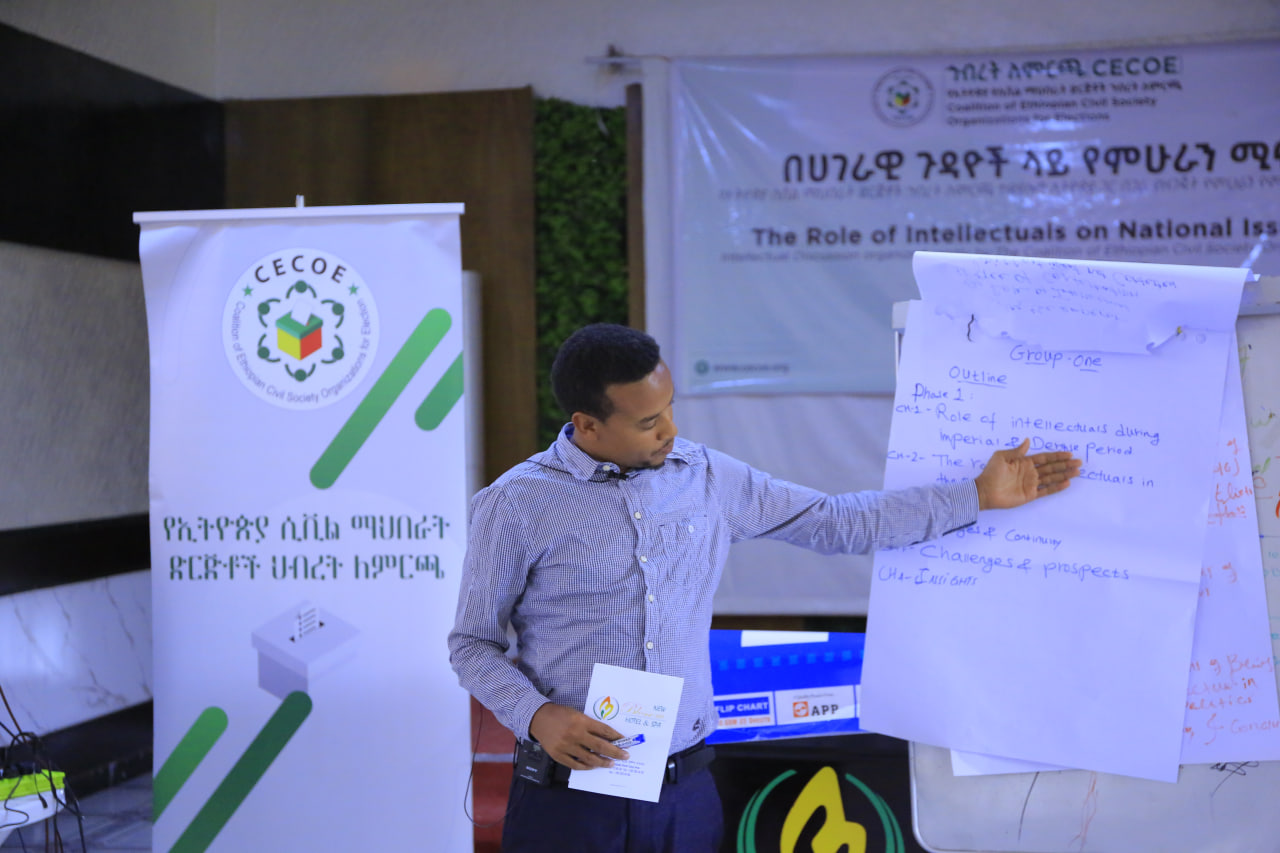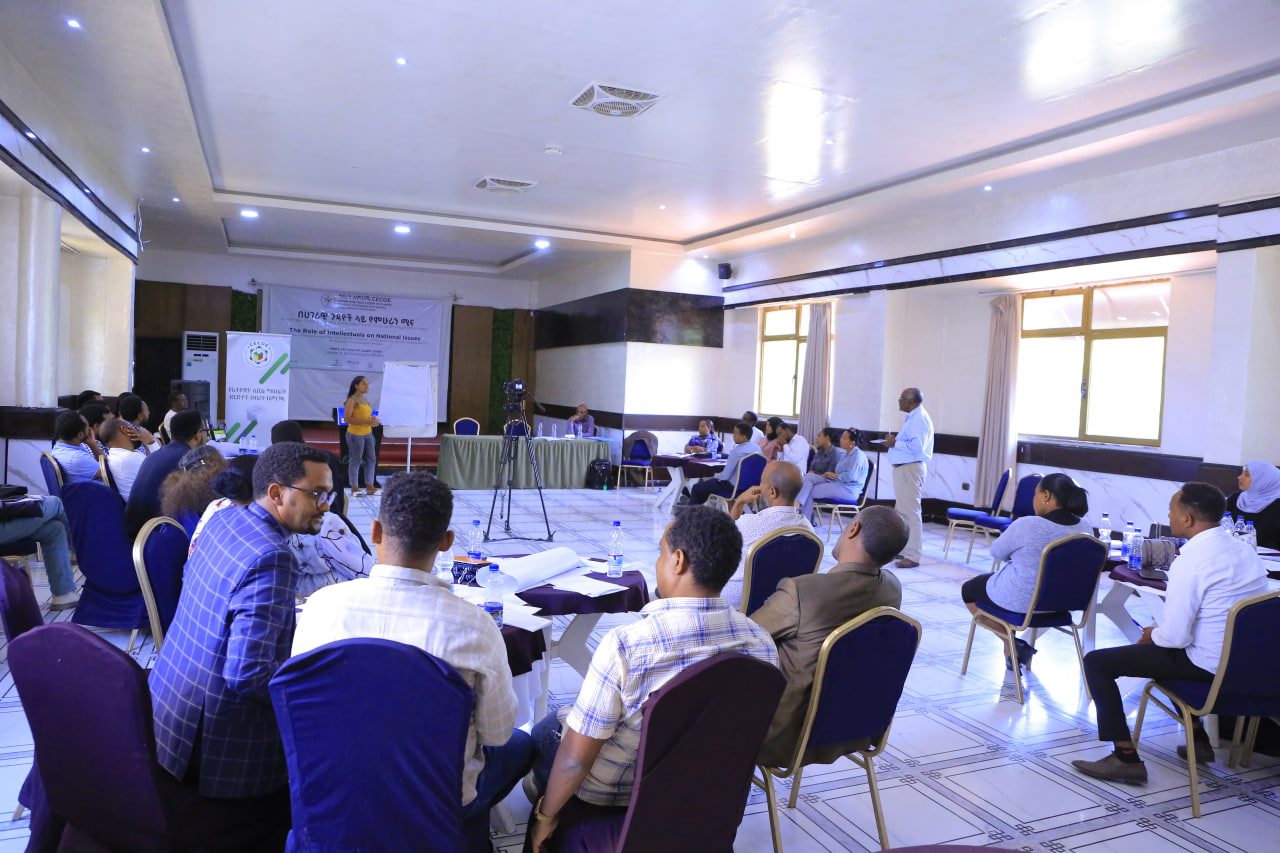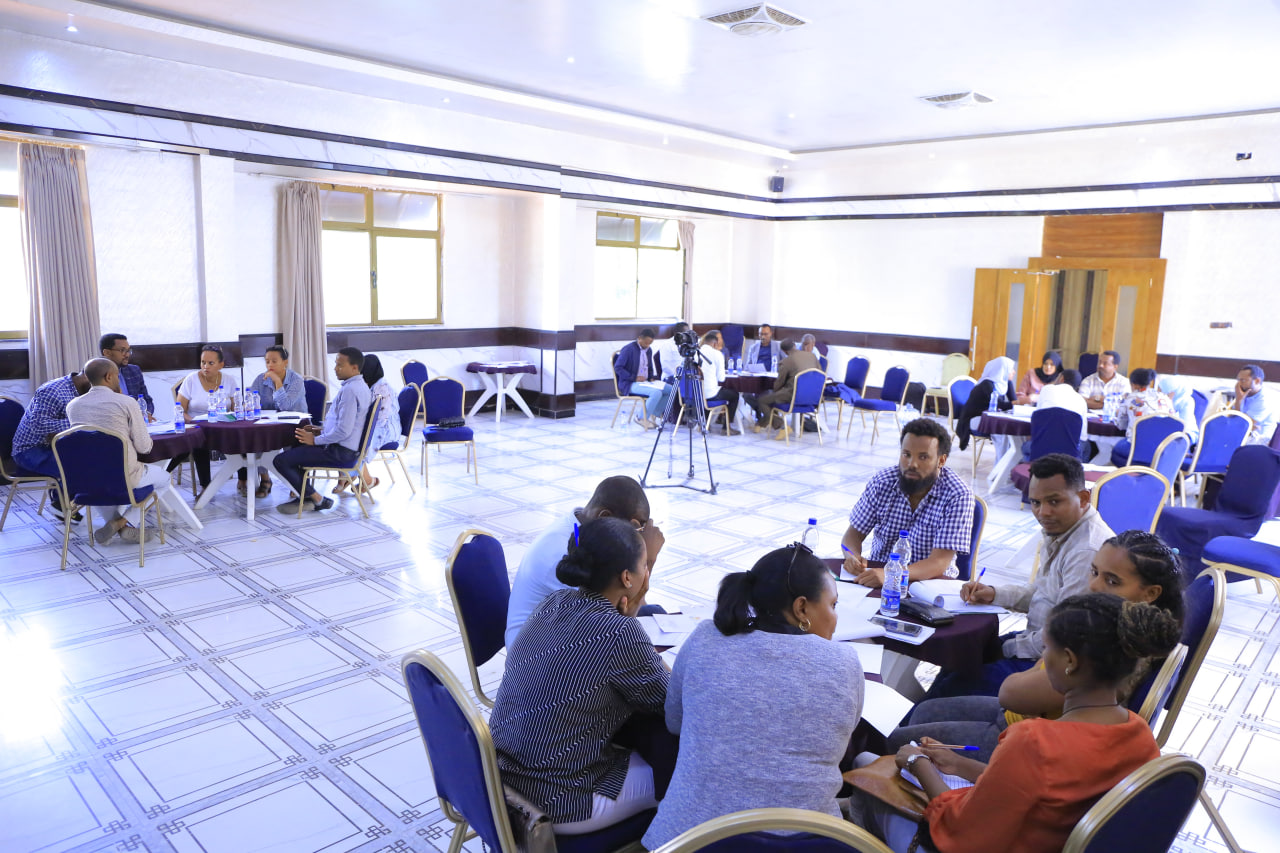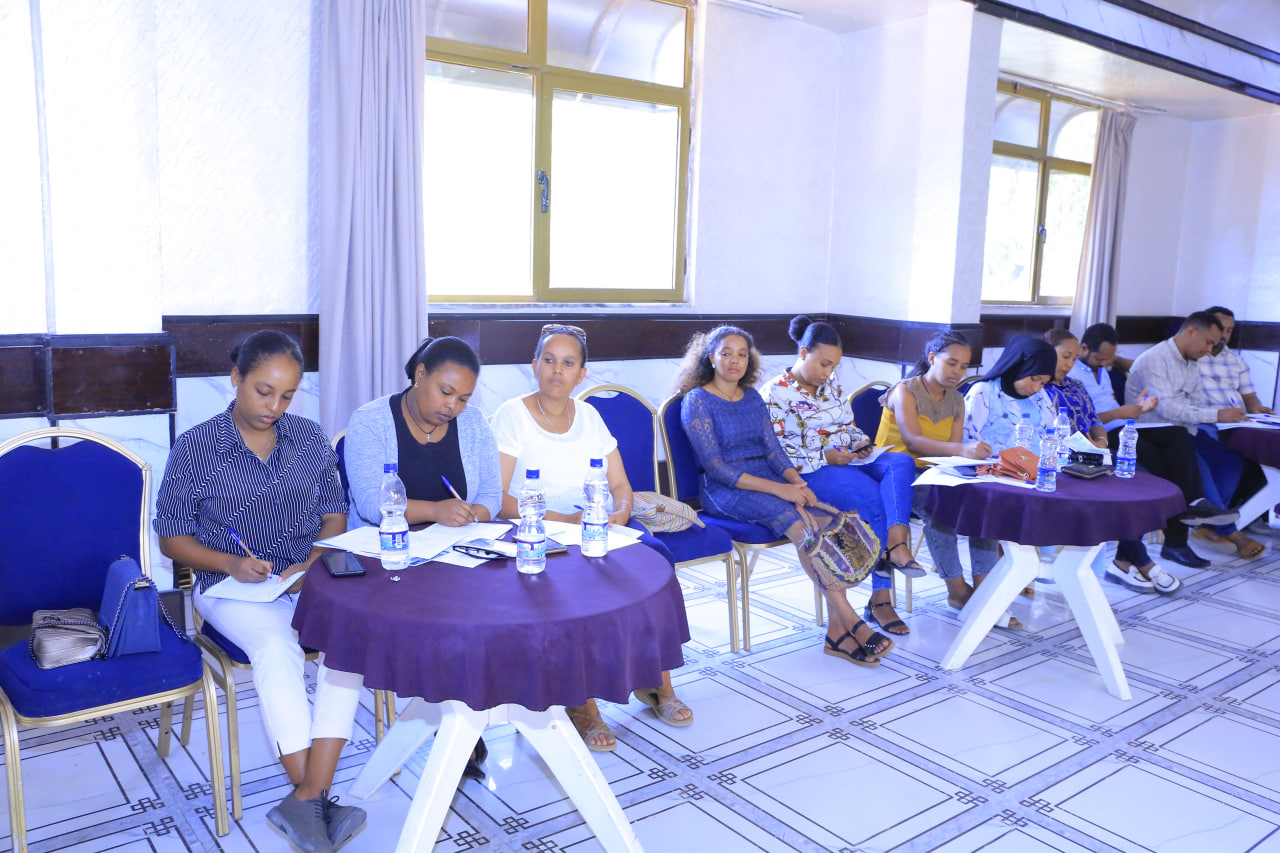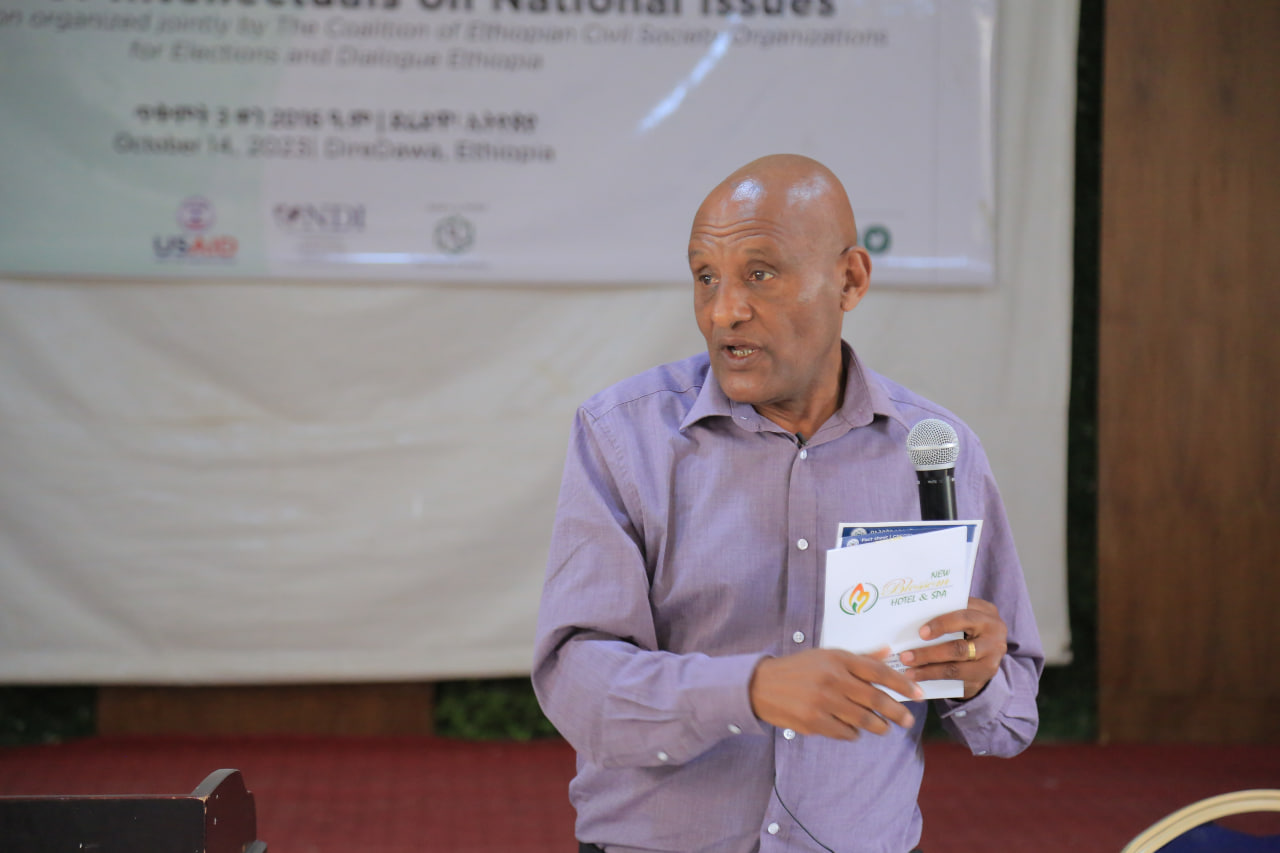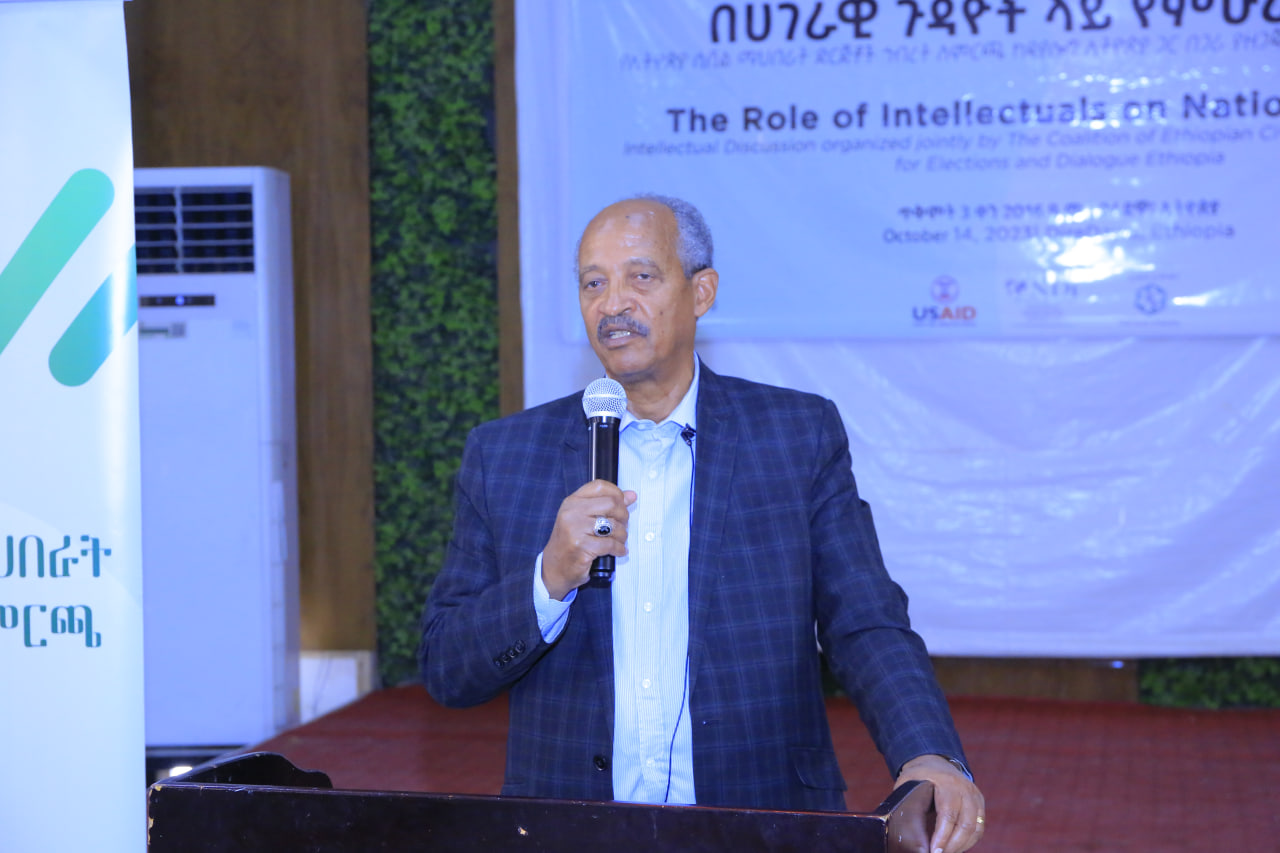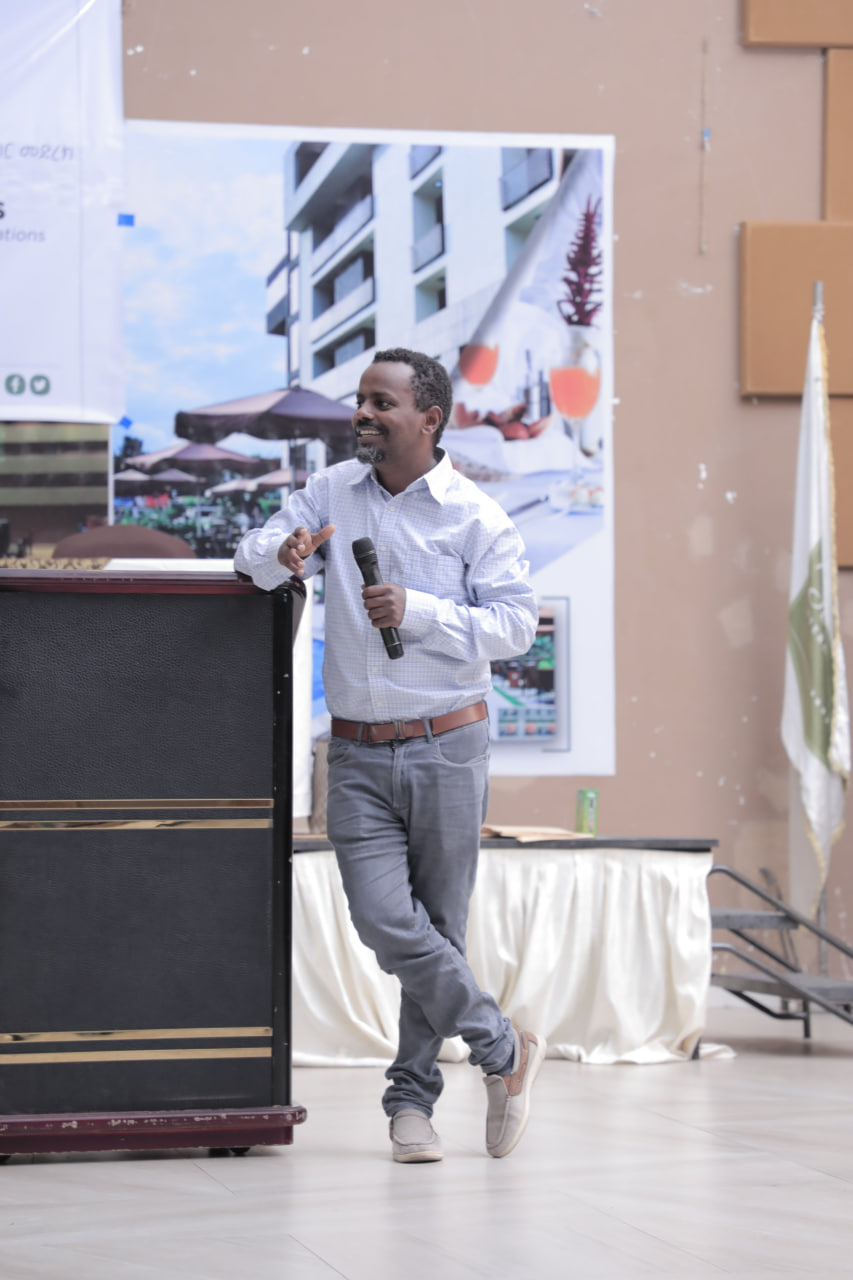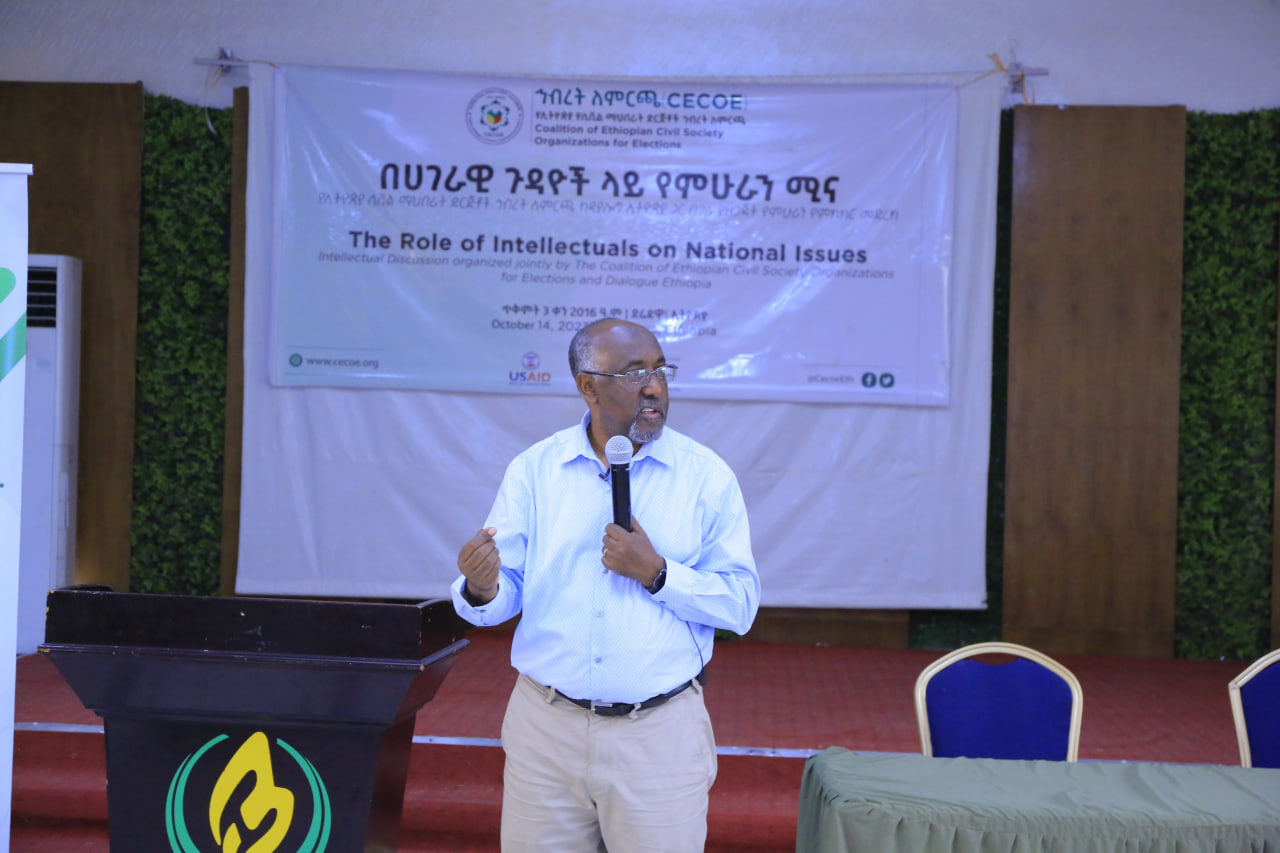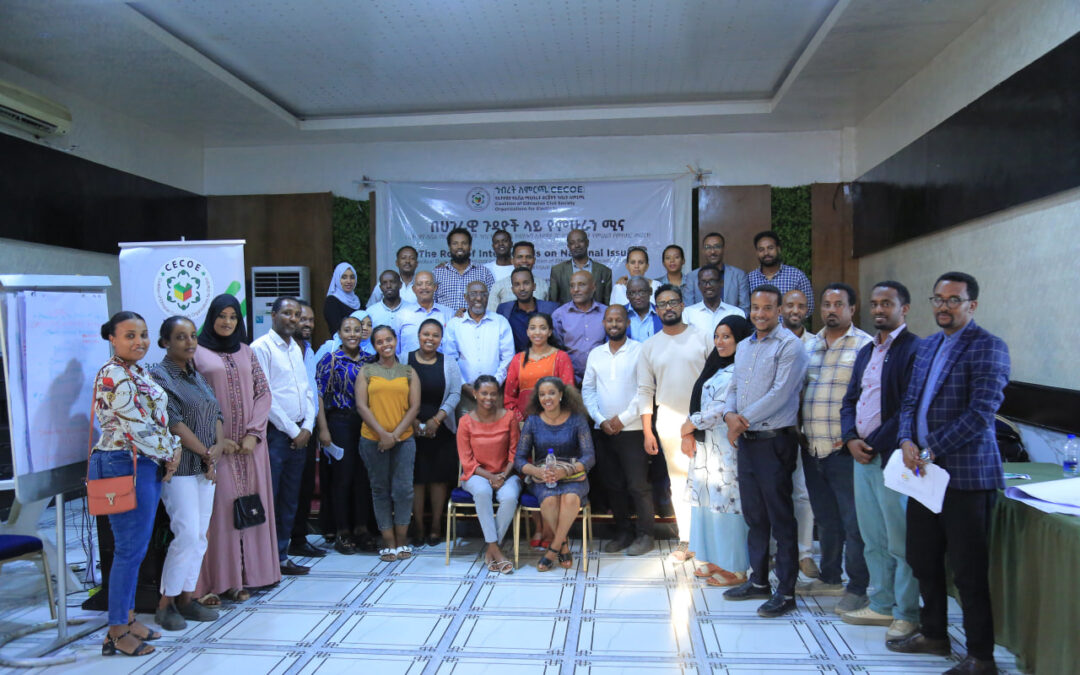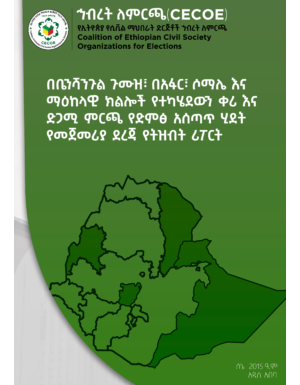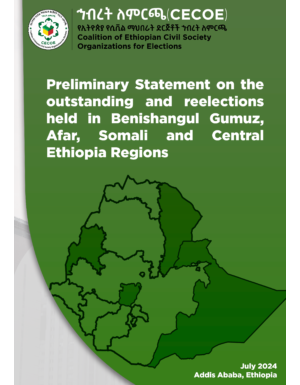The Coalition of Ethiopian Civil Society Organizations for Elections (CECOE), in collaboration with Dialogue Ethiopia, conducted a series of intellectual dialogues themed “Role of Intellectuals on National Issues” on October 14, 21, and 28 in Dire Dawa, Hawassa, and Addis Ababa, respectively. These dialogues brought together 134 intellectuals from 12 universities to engage in inspiring discussions and explore the critical role of intellectuals in determining Ethiopia’s future.
Welcoming speech: CECOE’s Enduring Commitment to Ethiopia’s Democratic Processes
The dialogues commenced with opening remarks by Abera Haile Mariam, the Executive Director of CECOE. In his remarks, he highlighted CECOE’s unwavering commitment to contribute to strengthening democracy in the Ethiopia, process and featured its active involvement in various electoral cycles, including the 6th general election, Sidama, Southwest, South Ethiopia referendum, Wolayita referendum rerun, and other crucial electoral related engagements.
Keynote Speeches: Intellectuals as Agents of Change
Ayalew Zegeye, the Board chairperson of Dialogue Ethiopia, set the stage for the dialogues by emphasizing the paramount importance of intellectuals in addressing national issues. This was followed by insightful keynote speeches delivered by renowned scholars Dr. Yeacob Arsano and Dr. Yonas Ashine from Addis Ababa University. The speakers delved into the journey of Ethiopian intellectuals, their contributions and the challenges they faced during various regimes.
The keynote speakers also underscored the pressing need for intellectuals to make practical commitments that foster sustainable development, uphold constitutionalism, promote modernity, and preserve continuity. The speakers also stated the current intellectuals category falls by two i.e. some are passionate about power and others focus on academics and research. The latter, most of them think that they are mandated solely to do research and laboratory work targeting only being a professor, these are prisoners of their intellectual desires. Due to this, they became monastic intellectuals. The keynote speakers also challenged the intellectual community to actively seek solutions that bring peace, reconciliation, and end to conflicts.
Group Discussions and Presentations: Intellectuals as Problem-Solvers
Following the keynote speeches, participants were divided into groups and tasked with addressing the critical question: “What can and should Ethiopian intellectuals do to change the status quo and positively influence the future of the country?” The groups engaged in lively discussions and presented their findings, covering considerable areas:
- Intellectuals as Problem Solvers: Participants underlined the expectation for intellectuals to actively contribute to finding solutions to Ethiopia’s challenges, recognizing their potential to provide insightful analyses and propose effective solutions.
- Individual and Collective Initiatives: Intellectuals are encouraged to take proactive steps, both as individuals and groups, to address national issues. This included initiating grassroots movements, engaging in community outreach, and advocating for social change.
- Genuine, Neutral, and Creative Engagement: Participants stressed the importance of discharging their responsibilities with authenticity, neutrality, and creativity. Intellectuality was seen as a platform for fostering open dialogue, promoting critical thinking, and embracing diverse perspectives.
- Engaging with Government Bodies: Intellectuals were called upon to bridge the gap between academia and government, seeking to alter perspectives about their roles and collaboratively address problems. This involves engaging in constructive dialogue with policymakers, providing expert advice, and participating in policy formulation processes.
- Strategic Foresight: Participants recognized the significance of strategic thinking and planning for intellectuals to effectively shape Ethiopia’s future. This encompasses anticipating emerging trends, developing long-term visions, and formulating actionable strategies for sustainable development.
- Trust in the Process: Intellectuals are urged to trust the process of change and actively engage in dialogue sessions, recognizing that progress often requires sustained effort and collective action.
- Research findings to inform policy decisions: Engaging in research that tackles real-world problems was identified as a crucial task for intellectuals. This includes conducting empirical research, generating data-driven insights, and applying research findings to inform policy decisions.
- Reality-Based Suggestions: Participants highlighted the importance of providing suggestions grounded in Ethiopian reality. This comprises understanding the historical, cultural, and socioeconomic factors shaping the country’s challenges.
- Developing Empathy: Intellectuals were encouraged to cultivate empathy and consider the needs and perspectives of all Ethiopians. This involves listening to diverse voices, accepting the root causes of societal issues, and advocating for marginalized communities.
- Breaking the Silence: Participants emphasized the need for intellectuals to be courageous, risk-takers and break the silence on critical issues. This consists of speaking out against injustice, challenging harmful narratives, and promoting responsible citizenship.
Conclusion and Key Takeaways:
In conclusion, the intellectual dialogues emphasized the importance of making an influence to positively change things by sharing knowledge and experience. It was also recommended that intellectuals engage in discussion forums on national and other related issues on a large scale and with a wide range of issues. Moreover, advocacy, setting agendas, and networking among intellectuals were raised as the essential ways forward.
The key takeaways from these dialogues include:
- Intellectuals possess the power to positively influence Ethiopia’s political and development trajectory.
- Proactive and constructive engagement with the government and other stakeholders are crucial for real change.
- Intellectuals should establish means of networking and communication channels to advocate for solutions to the challenges Ethiopia has faced.
Call to Action:
CECOE and Dialogue Ethiopia will continue organizing similar forums and call on all Ethiopian intellectuals to join the discussions and actively contribute their fair share to shape a better future for the country.
